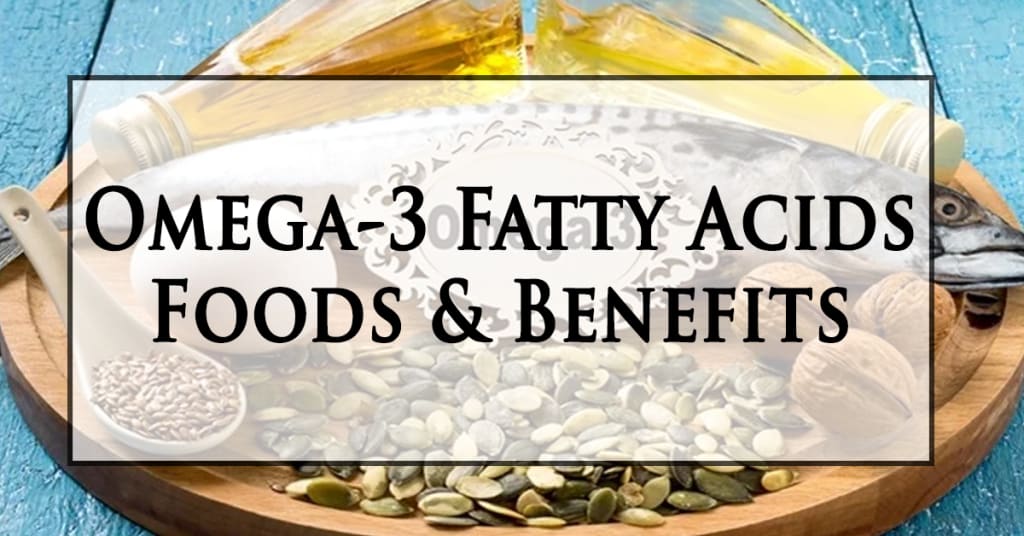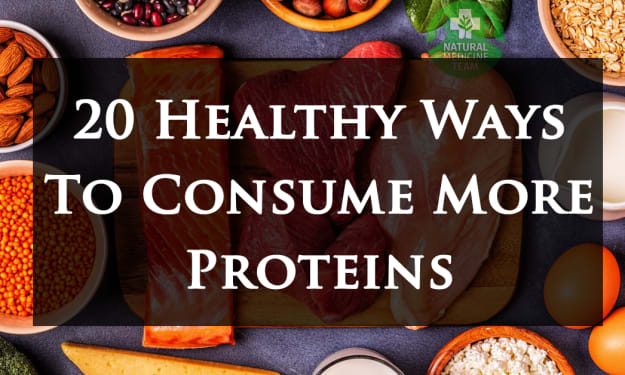Omega-3 Fatty Acids: Foods & Benefits
Omega-3 Fatty Acids

We constantly hear that regular consumption, but also the balance between omega 3 and omega 6 fatty acids is essential for maintaining optimal health, ie for the prevention of a number of chronic diseases. But do we know what they really are, why they are so important to our health, what is the difference between them, and what foods they are present in?
What are omega 3 fatty acids?
Omega 3 fatty acids are polyunsaturated fatty acids. The human body does not have the ability to synthesize (create) this type of fat.
The term polyunsaturated refers to the chemical structure. "Poly" means much / more, while "unsaturated" refers to the double bonds in the fatty acid structure. In translation, this means that omega 3 fatty acids have a series of double bonds in their chain structure.
"Omega 3" refers to the position of the last double bond along the chain, ie that the last double bond is on the third carbon atom in the sequence, calculated from the end.
Given that the body can not produce this type of fat, and has an essential need for them, we must enter them through a diet rich in omega 3. In fact, the term "essential fat" means fat that we must eat regularly through our diet or supplements.
There are several types of omega 3 fatty acids chemically (ALA - alpha-linolenic, EPA - eicosapentaenoic, and DHA - docosahexaenoic), but all have a similar effect. The body can produce EPA and DHA from the entered ALA. Unfortunately, the modern diet usually does not get enough omega 3 fatty acids, so the vast majority of the population is deficient. Below are the products that are rich in omega 3 fatty acids.
Functions of omega 3 fatty acids in the body
These essential fatty acids have many roles in our body, for example, they are a very important part of the membranes of our cells, meaning a structural role, but they also perform several other functions, such as:
• Better cardiovascular health - increase the level of "good" HDL cholesterol and lower blood triglycerides (fats), thus reducing the risk of plaque formation in the arteries.
• Better mental health - reduce the symptoms of depression, schizophrenia, and bipolar disorder.
• Help maintain normal body weight - play a significant role in weight control and reduce the amount of fat around the waist.
• Reduce fat in the liver
• Support brain development in the youngest - omega 3 fatty acids are extremely important in the development of the brain in babies.
• Help fight inflammatory processes - they are anti-inflammatory, which means they reduce inflammation, which in turn is a significant risk factor for most chronic diseases.
• Better bone health - People who get enough omega-3 fatty acids have been found to have better bone density.
• Contribute to the prevention of asthma at an earlier age
What are omega 6 fatty acids?
Like omega 3 and omega 6 fatty acids are polyunsaturated fatty acids.
The only difference is that their last double bond, instead of the third, is on the sixth carbon atom, calculated from the end of the fatty acid chain. These fatty acids are also essential, but unlike omega 3, they are primarily used for energy purposes.
The most common of these fatty acids is linolenic acid, which can convert to longer omega 6 fatty acids, such as arachidonic acid (ARA). This fatty acid can also produce eicosanoids with pro-inflammatory action important for the immune system. However, excessive amounts of eicosanoids can be harmful through a significant increase in inflammatory processes in the body.
Omega 6 fatty acids have been shown to be important in some chronic diseases. For example, some studies show that gamma-linolenic acid (GLA) and dichomo-gamma-linolenic acid (DGLA) can help with rheumatoid arthritis and breast cancer. Another omega 6 fatty acids have been shown to be effective in reducing adipose tissue.
What should be the proportion - omega 3 - omega 6 fatty acids?
Unlike omega 3 fatty acids, not only is there an omega 6 fatty acid deficiency, but their surplus is much more common.
Studies show that people need to reduce their consumption of these fatty acids, even though they are essential.
The ideal ratio between omega 6 and omega 3 fatty acids is considered important for cardiovascular health and should be 4:1 or even less, but most modern diets provide 10:1 or even 50:1 in favor of omega 6 fatty acids.
Which foods are rich in these fatty acids?
Omega 3 fatty acids :
(in one meal)
• Fish oil - the best source of EPA and DHA omega 3 fatty acids
• Algae - a rich source of ALA
• Chia seeds - ALA (4.9g)
• Walnuts - ALA (2.5g)
• Flaxseed - ALA (2.3g)
• Tuna - EPA and DHA (0.3g)
• Sardines - EPA and DHA (2.2g)
• Salmon - EPA and DHA (4g)
The body can produce EPA and DHA from ALA entered.
There are no official standards as to how much the ideal intake of omega 3 fatty acids should be, but on average, according to the relevant institutions, they should be consumed daily from 1.1 g for women to 1.6 g for men (for adult individuals).
Omega 6 fatty acids
As mentioned, most people are not deficient in these fats, as they are found in really large amounts ( for example, in 100 grams of sunflower- 34g ) in a variety of everyday foods, such as cooking oils, seeds, nuts, etc.
The recommended daily intake of these fatty acids ranges from 12g for women to 17g for men.
Supplementation
Given that deficiency occurs almost exclusively in omega 3 fatty acids, supplementation only makes sense. However, it is best to get enough of these fatty acids through your diet.
About the Creator
Top Natural Remedy
Natural Remedies, Health Tips, Recipes and more... topnaturalremedy.com >> Nature Is Your Best Medicine ☘️






Comments
There are no comments for this story
Be the first to respond and start the conversation.